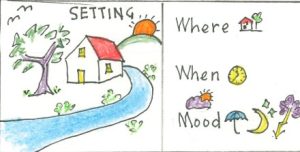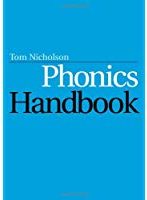The book list below was compiled by Joan Gibbons, formerly editor of Literacy Forum NZ – be sure to check they are suitable, especially the list for teenagers some of which tackle difficult topics
Picture Books for ages 4-14 years : Burglar Bill, Rats, Jim and the beanstalk, Calico the wonder horse, The Gruffalo, Wolves, This is not my hat, Story of Ferdinand, Black and White, The three bears, sort of, The church mouse, Big bad Bruce, Stinky Cheeseman, Where the wild things are, In the night kitchen, Annie and the moon, Kimi and the watermelon, The short and incredibly happy life of Riley, Hare: Farewell Jack farewell, Jumanji, Tuesday.
Novels for ages 8-14: The book of three, Slide the corner, Jacko Moran: Sniper, Artemis fowl, Dunger, The witches, Flour babies, McBroom’s wonderful one-acre farm, 2MUCH4U, Under the mountain, Toad rage, Flush, Storm breaker, Unreal, Charmed life, Lion, witch, and wardrobe, Mrs Frisby and the rats of NIHM, Hatchet, A long way from Chicago, Captain underpants, The wee free men, Clockwork (all wound up), Mortal engines, Rown of Rin, Harry Potter and the philosopher’s stone, Holes, Nips XI, Knitwits, The Hobbit, mr Stink, The machine gunners, The story of Tracy Beaker.
Easy-to-read books for older teenagers (age 15-17): Boyz ‘n bikes, The day no pigs would die, Sone cold, Alex Rider books.




